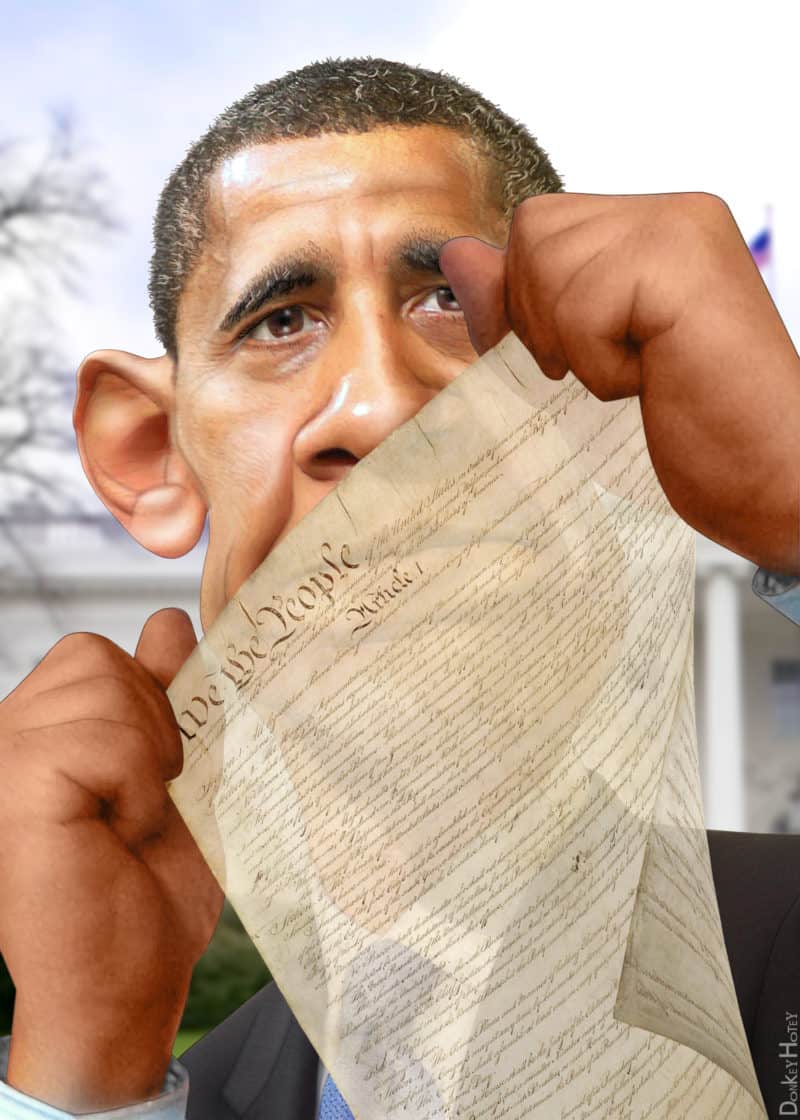The politicians, pundits, advocates, and academics on one side or the other have all ventured an interpretation of the NDAA—or thrown up their hands, protesting that the Act’s vague and confusing terminology defies a straightforward or universal construction. From my perspective, what matters is not the standard or reasonable interpretation of the NDAA, or that which is constitutionally or statutorily defensible. What matters is the most extreme incarnation, since that is where antiterrorism measures inexorably lead. Add to that the clear intent of many of the Act’s proponents, coupled with the political difficulties in foregoing the toughest available approach to terrorism, and interpretation becomes less important than what the NDAA represents in possibility.
As a metaphor, NDAA is a loaded gun on the night table. You may rest comfortably knowing you will not use it improperly. You may trust your spouse—even your kids—to treat it responsibly, but even that is one step removed from certainty in a context in which certainty is the only safe alternative. When you start adding additional access—your kids’ friends, unstable visiting relatives, the handyman—you get the idea. It’s a disaster waiting to happen, and your own reliability—and who can account for emotional upheavals or misperceived “emergencies” that might cause us to act imprudently—is irrelevant and merely a smokescreen for the larger, more articulable danger.
Not that there should be any confidence in the current administration. It is difficult to know where to file President Obama’s promise—non-binding, of course, and uttered in the course of issuing a “signing statement,” a means of unilateral executive legislative interpretation so favored by President Bush, and which Obama the candidate so correctly condemned—that he will not use the NDAA’s authority to subject U.S. citizens to “military detention without trial.” Should we put in the same category as his promise to close the Guantanamo Bay detention facility? Or his pledge only last year, when signing the 2011 NDAA, that he would “seek to mitigate [its] effects” and “oppose any attempt to extend or expand them in the future?”
Every defendant will face the prospect of continued indefinite uncharged detention even if acquitted…
Obviously, in the annals of politicians’ promises, those which provide your opponents an opportunity to call you “soft” on terrorism are the easiest to disregard, or, in President Obama’s case, not only leave unfulfilled, but in worse condition than when he assumed office. Thus, in the next year or five years, fidelity to the current promise regarding the scope of authority under the NDAA could well be as fleeting, and in practical terms, there is nothing anyone can do to hold the president to his promise. Besides, President Obama’s promise itself leaves much to be desired, as it perpetuates the distinction, not recognized in constitutional jurisprudence, that in the domestic criminal context citizens are afforded more rights than aliens.
Nor does the fact that, as national security experts within the government agree, the NDAA will impair, rather than enhance, national security appear to deter the NDAA’s supporters. Debating the merits with them is like trying to convince a compulsive gambler that the odds are heavily in the casino’s favor. The interference with productive investigations and interrogations, the confusion NDAA will create regarding jurisdiction, and the legal controversies that will ensue, have all been set forth ad nauseum. The NDAA will also substantially reduce, if not eliminate altogether, international cooperation with respect to counter-terrorism. U.S. allies already think twice before assisting the U.S., given the U.S.’s expansive approach to detention and prosecution; faced with the prospect of implementation of the NDAA’s provisions as a consequence of sharing information with or extraditing persons to the U.S., aid from those allies will be diminished even further.
Also, with the government option of indefinite detention, the U.S. criminal justice system will devolve into a charade of sham show terrorism trials—whether in the military commissions or Article III federal courts—because the results will be meaningless. Every defendant will face the prospect of continued indefinite uncharged detention even if acquitted. Over time, of course, even those trials will be dispensable as well. Why pursue the option of formal charges, when that raises the possibility of trials, which raises the possibility of an undesired result (even one “not guilty,” when, as in the Ghailani case, but one guilty verdict in the same case results in life imprisonment)?
In declaring “the homeland is the battlefield,” as its proponents have loudly and proudly proclaimed, Congress, through the NDAA, has bequeathed us the ultimate building block for the national security state without boundaries: a war in which the battlefield, the enemy, and time frame are limitless—anywhere, anyone, any time, and without any standards for guidance, other than “current law,” which everyone acknowledges is unclear. No more perfect vehicle—a modern legislative Trojan horse—for intrusions on civil liberties and fundamental American values could be constructed in the name of “national security.”

